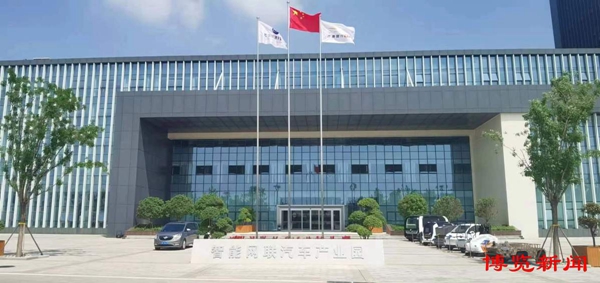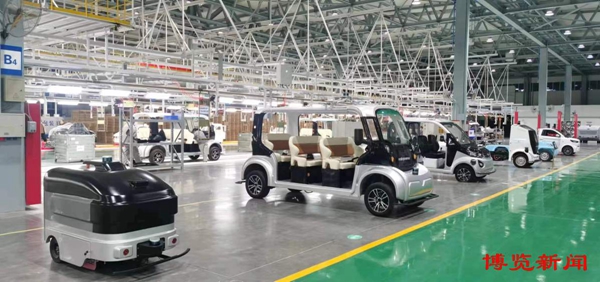
Zibo city in East China's Shandong province is continuing to accelerate the development of the intelligent connected vehicle, or ICV.
That's in the wake of its inclusion in December last year in the second group of pilot cities for intelligent city infrastructure and intelligent connected vehicles.
As one of the 11 new industries deployed in Zibo, the ICV is a new generation of vehicle that integrates modern communications and network technology, with the characteristics of safety, orderliness, efficiency and energy saving.

A view of the ICV industrial park in the Linzi Economic Development Zone. [Photo/zbnews.net]
Located in the ICV industrial park in Linzi Economic Development Zone in Zibo, Suntae Automotive Co Ltd has the first autonomous logistics vehicle flexible production line in China. It boasts an annual output of 50,000 units and the first automatic detection line for the mass production of unmanned vehicles.
The company has developed six main categories of unmanned products – including shuttles, sanitation vehicles and those used in retail, security and logistics. They are widely used for many functions including epidemic prevention and control and even in university teaching. The company's sales topped 40 million yuan ($6.2 million) in 2021.
Suntae Automotive's chairman, Wang Lei, said revenue is expected to hit 100 million yuan this year.

A variety of newly produced ICVs wait to be tested at the factory. [Photo/zbnews.net]
In the face of the highly competitive market, Zibo has focused on the whole supply chain for ICVs. This covers technology research, intelligent manufacturing, comprehensive testing and operations demonstrations.
Moreover, it has built an ICV innovation center and constructed a 5G low-speed unmanned closed test site on 36 mu (2.4 hectares) of land and a 300 mu semi-open test line.

An aerial view of Zibo's 5G low-speed unmanned closed test site. [Photo/zbnews.net]
In addition to expanding its range of testing, Zibo plans to build the first ICV cloud control platform in the province. Plans are for it to deploy 600 units throughout the city, with the number increasing to 1,000 by 2023.